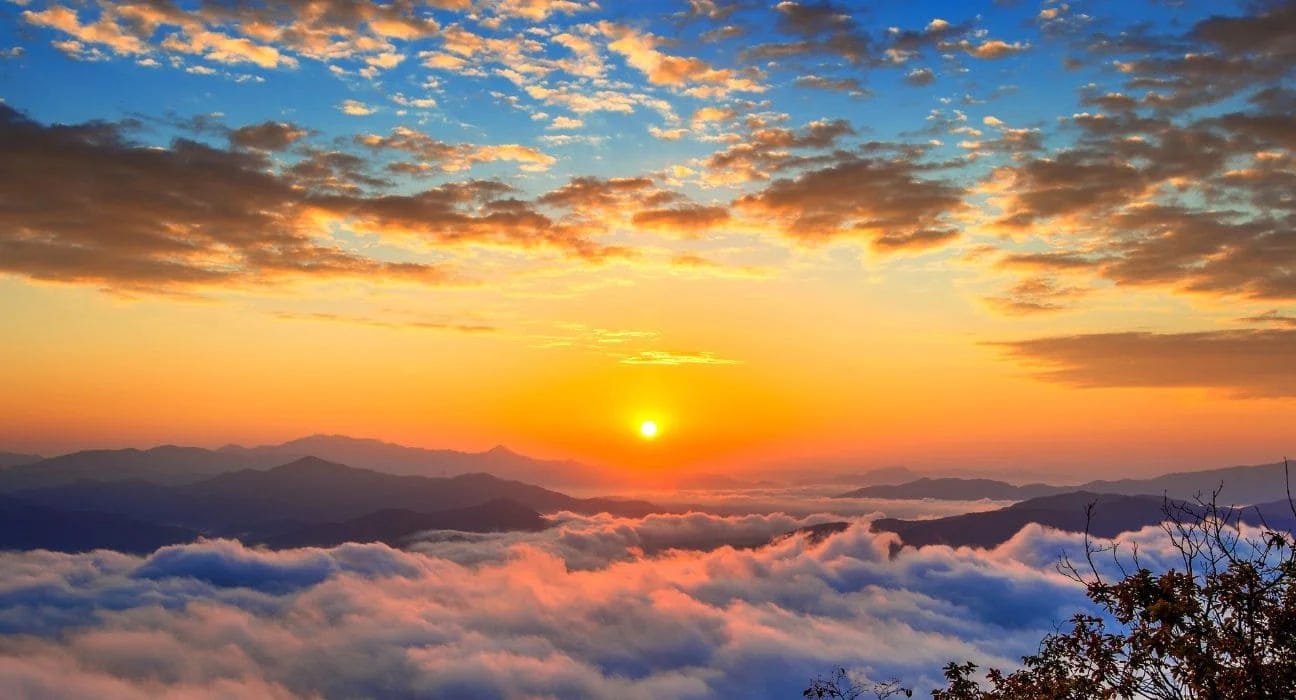“Do you think we’re going to make it?”
I’m often asked this in earnest, in doubt, in despair. Sometimes, it’s asked with quiet hope, because the person asking wants to borrow a little of mine.
Climate change, war, genocide, pandemics, AI taking jobs, riots, brutality, extinctions, pollution, tariffs, recessions, etc, etc, etc.
The world can feel like it’s teetering on the brink. And for so many people, the world has already fallen.
How do you stay so optimistic?
Sometimes this is asked with incredulity, exasperation or even condemnation. As if my belief in the future is a personal attack on those who have lost theirs.
There are no oracles.
Will we make it? I have no idea, no one does. Despite millions of words written and careers built on being ‘futurists’, no one can say with certainty what will happen next.
And this is the important part: you don’t need to know.
You don’t have to be sure the world will get better.
You don’t have to have faith that your work will ‘succeed’.
You don’t need to measure your contribution in final outcomes or global milestones.
Because the value of working to make the world better doesn’t come after.
It’s not dependent on applause, proof, or legacy.
The worth is in the doing.
Don’t confuse impact with meaning.
Of course, I want to make an impact. I’ve spent my adult life in sustainability, social impact and working to make a difference. This is literally my life’s work.
So many people are trying, in small and big ways, to do the same. Working in disaster relief, giving money or time, planning new laws, supporting cleaner tech, building safer homes, smarter businesses, and stronger communities.
But all too often, the difference we make won’t be visible immediately, or even in our lifetimes.
Your efforts might take decades to unfold, while the problems persist.
Or you might spark something in someone else, somewhere else, that you never find out about.
Or your ideas and work might be absorbed into a movement so wide and deep that no one person can ever claim credit.
That doesn’t mean it didn’t matter.
So many of the people who changed the world never lived to see that change.
The abolitionists, the suffragettes, the early climate scientists, the frontline organisers; they didn’t wait to feel certain. They didn’t wait to be celebrated. And they didn’t stop just because things got worse before they got better.
They acted because it was the right thing to do.
Stop letting the context strip your work of its meaning.
It’s easy to feel like the bad news cancels out the good work.
The rise in emissions. The brutality of war. The election of climate-denying governments. The rollback of rights or the loss of public trust. It can all feel like a wave that keeps knocking you down, just as you’re learning to stand.
That arc of history which bends towards justice? It moves so slowly that it can look like it’s bending backwards.
But you don’t need an ever-perfecting world to do meaningful work. In fact, the messier the context, the more your work matters.
Meaning isn’t dependent on momentum. You can do the right thing, even in the wrong era.
Keep going without certainty.
You don’t need to be the person who saves the world; you just need to be one of the many people who show up for it.
That means leading even when you’re tired. Creating even when you’re unsure.
Telling the story of hope, even when you wonder who’s listening.
We may not live to see the ending we want.
But we can still write the chapters we’re proud of.
Which is why it’s all going to be ok.
…………………………………………….
In other news:
I’m recruiting a ‘street team’ of volunteers to help promote my debut novel Godstorm between now and launch. Sign up, and you’ll get a free e-book copy of the novel to review (before anyone else), as well as all the book gossip and goodies. As part of the street team, I’ll ask you to share promotional content on social media, review and generally help raise some noise about Godstorm! To sign up, click here.





Love this, Solitaire. I’ve lived both sides of that “doing” revelation.
About six months after I politely badgered Ray Anderson into giving his “spear in the chest” speech, I hit a wall. The more I learned about the environment, the heavier it felt. Guilt from my past in big oil and chemicals, the enormity of the crisis, I was drowning.
Then one morning, it hit me. Wallowing in that state (guilt, anxiety, paralysis) was painful, exhausting, and profoundly unproductive. I didn’t want to live that way. I made a conscious choice to push that mindset aside and focus on what I could do.
That shift changed everything. As I engaged more deeply with others, I felt more alive and creative than ever before. The energy came from doing the work and belonging to a mission-driven community. And here’s the thing: like fear, joy is contagious too. Sharing the joy—not just the burden—of this work is what draws others in and helps the movement grow.
Thanks for the reminder: the joy is in the doing, and in the people you do it with.
There’s always a better way.
Well said. Ordinary people showed up for the country and the world yesterday.
We are not going to be ignored…